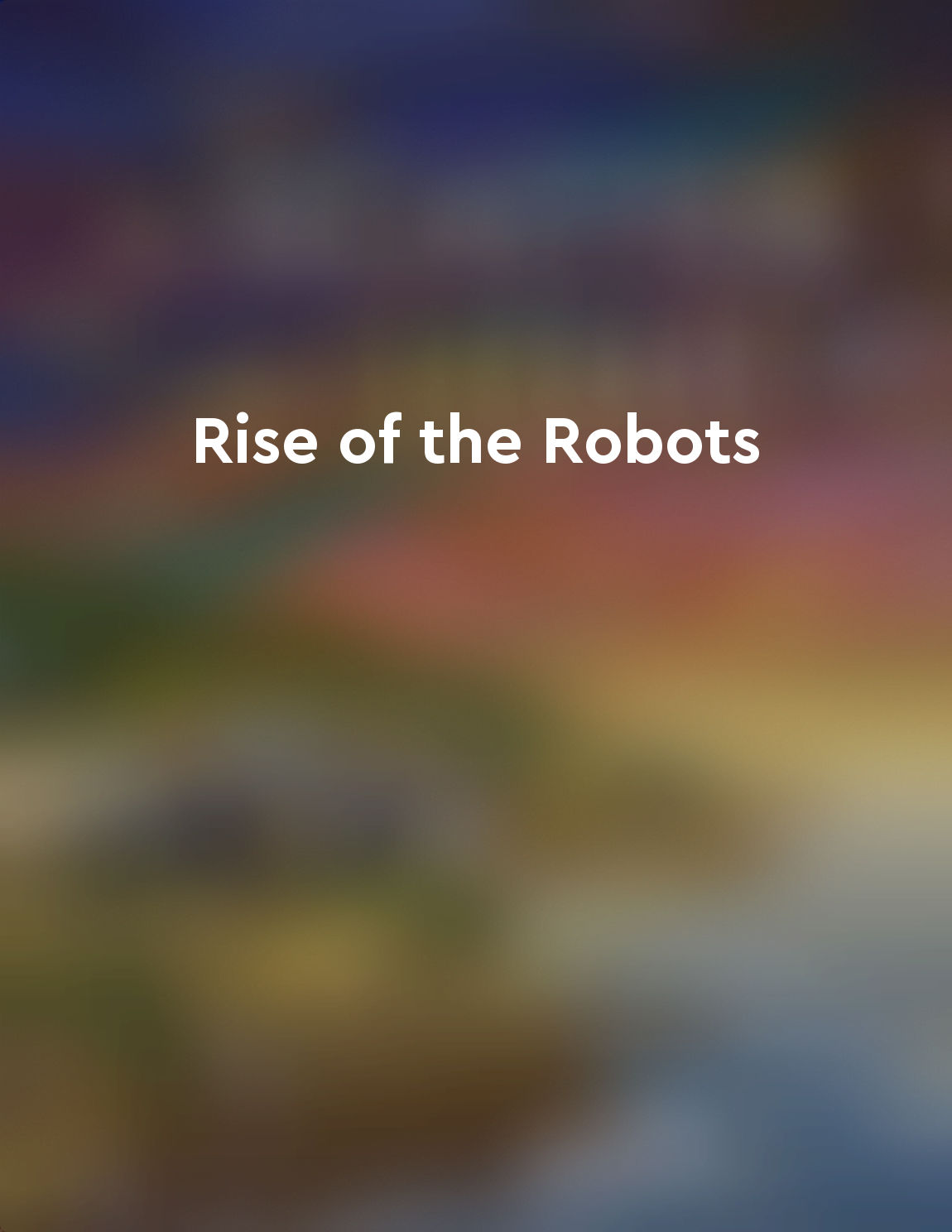The rise of robots poses ethical questions about the role of technology in society from "summary" of Rise of the Robots by
As robots become more advanced and integrated into various aspects of society, they raise important ethical questions about the impact of technology on our lives. These questions go beyond mere technical considerations and delve into the realm of philosophy, ethics, and human values. One of the primary concerns is the potential displacement of human workers by robots. As machines become increasingly capable of performing tasks that were once the exclusive domain of humans, many jobs are at risk of being automated. This raises pressing questions about the future of work, the distribution of wealth, and the meaning of human labor in a world where robots can do it more efficiently. Another ethical question posed by the rise of robots is the issue of control and autonomy. As machines become more intelligent and autonomous, who should be held responsible for their actions? Should we treat robots as mere tools, or do they deserve some form of rights and protections? These questions become even more complex as robots start to make decisions that have real consequences for human beings. Furthermore, the increasing use of robots in fields such as healthcare, law enforcement, and warfare raises concerns about privacy, safety, and accountability. How do we ensure that robots are used ethically and in a way that respects human dignity and rights? How do we prevent them from being used for harmful purposes or from causing unintended harm?- The rise of robots forces us to confront fundamental questions about what it means to be human, the nature of technology, and the values that should guide our use of it. It challenges us to think critically about the role of technology in society and to consider the ethical implications of our choices. As we move forward into an increasingly automated world, these questions will only become more urgent and complex.


